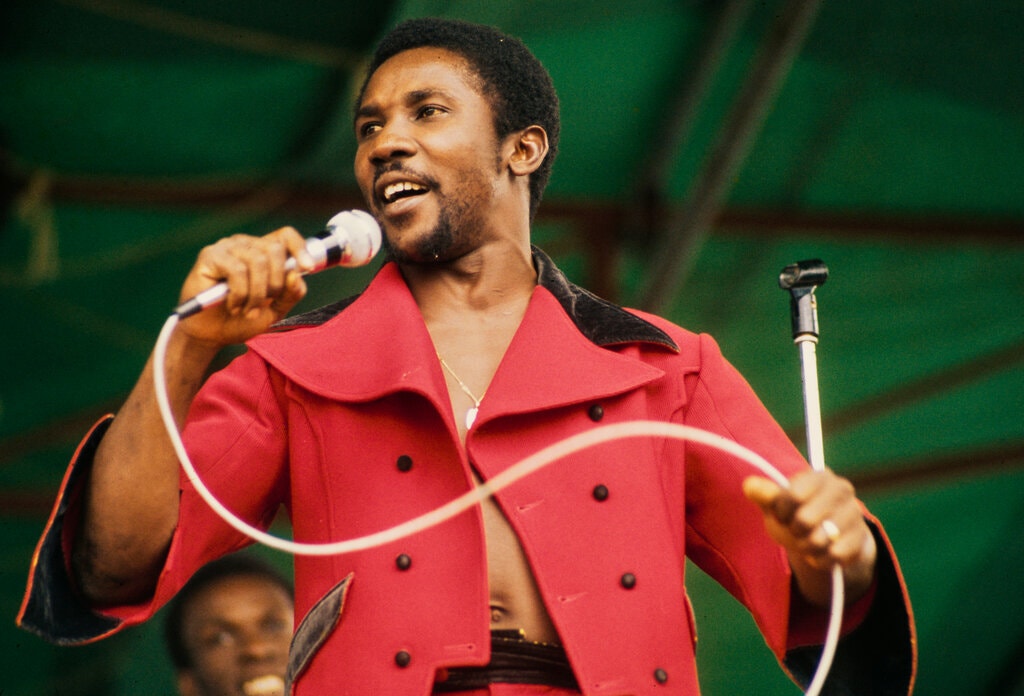Music |
Toots Hibbert: The Otis Redding of Reggae
By
Published: Sep 13, 2020
Category:
World
Toots Hibbert has died. The Times called him “a father of reggae.” True, that. I saw it for myself.
The year was 1973. The Harder They Come was a cult movie, and my friends and I listened to the soundtrack like addicts. I mean: 24/7. The Wailers (before Bob Marley became God and the group was relegated to back-up status) came to town, and I met them, and Toots and The Maytals came to town, and I met them too.
Toots Hibbert was fun. We zoomed around in my friend Steve’s open-air Jeep one night like the college kids Steve and I almost were. Toots came from a very different background, to say the least, but it was his good mood that pushed us onward. His good mood never faltered; he was a happy person, connected to his emotions and able to express them: the Otis Redding of Reggae.
We wanted to believe that we were on the ground floor of reggae, and he let us. Much later, I did the research and discovered that Toots had helped pioneer the music about a decade before I happened upon it. The son of a Seventh Day Adventist minister who preached in the Jamaican hills, he grew up dreaming of Kingston. He migrated there in the early 1960s, got a job in a barbershop, and hooked up with two other country boys, Raleigh and Jerry.
Toots is the Jamaican blend of James Brown and Otis Redding. He has a voice like a rasp — he can shout all night. Short, barrel-chested, endlessly smiling, he loves to perform, loves that people like his singing, loves the idea that music can bring people together in a way that fuses spirituality and, well, sex. [To buy the CD of “Funky Kingston” from Amazon, click here. For the MP3 download, click here.]
Toots and The Maytals had some hits in Jamaica, and then, in 1966, he was convicted of what he calls "a trumped-up ganja charge." In his words:
I didn’t have any ganja, I didn’t even start smoking yet. They didn’t have no cause to do that, but they found some cause. People try to do things to hold you back in life. So they put me in jail for about nine months or so, and that’s where I wrote the song (“54-46, That’s My Number”). They gave me the privilege of using my guitar. I didn’t have to do other work, just play guitar.
And then, in 1968, Toots and The Maytals recorded "Do the Reggay," the song that named the music. As he recalls:
There was the beat in Jamaica, reggae was played long before I started singing. And there was a slang, like a nickname for someone who don’t dress properly — like if you are barefoot, people would call you "streggae." They say, "Hey, that guy is streggae, don’t talk to him." If a girl don’t dress properly, like don’t have on any top, they call her streggae. So one morning, we just said, "Let’s go along and do some reggae." Those days we’d just make stuff up, anything. A bird flies around the corner, you write a song about it. So we just say (singing): "Do the reggay, do the reggay," and that’s it. A few words, y’know? And nobody paid it any mind until it started to go all over the world. I saw it in the Guinness Book of Records. So I thank God that I did something good, and I didn’t even plan it.
Naturally, his countrymen were crazy about this:
I’d only seen "The Harder They Come," and was hooked on the addictive “Pressure Drop.”
And of course…
By mixing R&B and reggae and his own beautiful soul, Toots joined the immortals. He wasn’t as rich and famous as Bob Marley, but he was plenty satisfied with what he got. Listening to him, you’ll be satisfied too.


